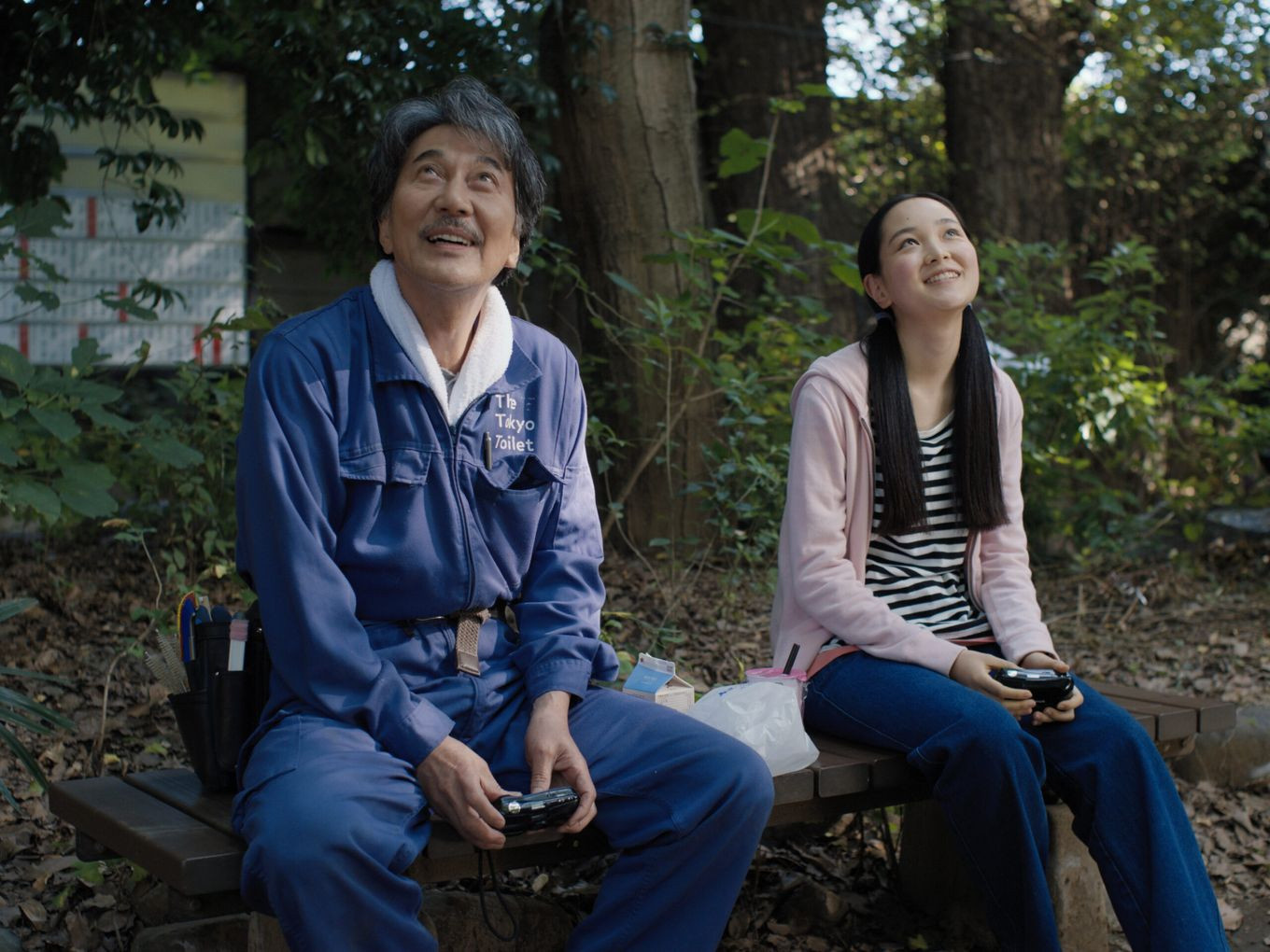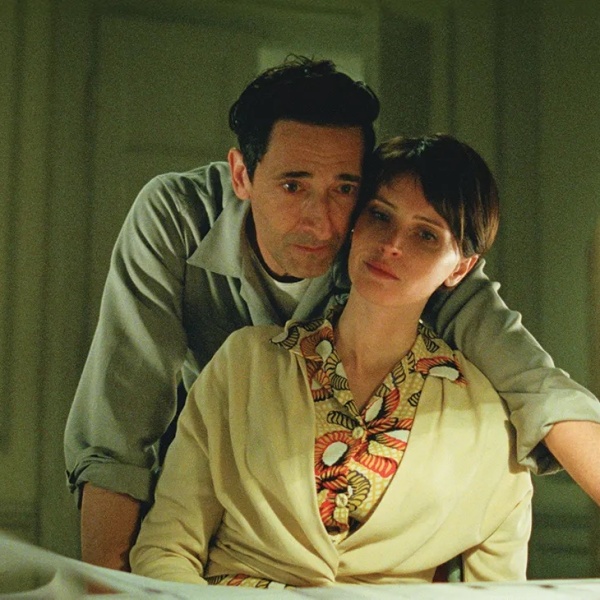Editor’s note: This review was originally published at the 2023 Cannes Film Festival. Neon releases the film in limited theaters on Wednesday, February 7, with expansion to follow.
Wim Wenders‘ latest, “Perfect Days” plays like the culmination of filmmaker’s long tryst with Japanese virtuoso Ozu Yasujirō, which includes Wenders’ 1985 Ozu documentary “Tokyo-Ga,” and manifests here as a distinctly Ozu-esque observance of life and rhythm. First commissioned as a short film project celebrating Tokyo’s state-of-the-art public toilets — the great social equalizer — Wenders snatches the concept and doesn’t so much run with it as much as he strolls with it in the park while contemplating dreams, the dignity of labor, and the fleeting joys of waking moments.
Yakusho Kōji plays Hirayama, a quiet, middle-aged toilet cleaner, and the embodiment of contentment, or so it would seem. He begins every day in his closet-sized duplex by carefully watering his plants, folding his mattress beside his enormous shelf of books and cassette tapes, and peeking his head outside his front door to soak in the morning air. Wenders captures his routine at eye-level, meaning he starts out at floor level, all but kissing the ground with his camera (itself an act of appreciation), before locking on to close ups of Hirayama on his long drive to work in his minivan, carefully stocked with cleaning supplies.
Popular American needle drops abound, each justified by Hirayama attempting to soundtrack his own life (his morning commute starts with The Animals’ “House of the Rising Sun”), followed by a diligent and detailed depiction of the aforementioned public loos, each uniquely designed, and each an architectural and technical marvel in its own right. At the end of his day, he joins smiling strangers and acquaintances for a hot meal at a local eatery.
The routine repeats, each time with a more condensed montage so that, like Hirayama, the audience never grows tired of it. Even annoying deviations are usually minor, involving Hirayama’s young slacker coworker (Emoto Tokio), who’s as impressed with as he is perplexed by Hirayama’s dedication to the job. His brief lunch breaks involve a trip to a garden where he snaps film photographs of nature, scenes which are mirrored by moments during his workday when his gaze happens to fall upon some gorgeous pattern of light shimmering across a concrete surface (courtesy of Franz Lustig’s poetic cinematography).
A melancholy realization soon sets in: that Hirayama may be an artist of some sort, but he either cannot or will not follow his passions. Even his dreams, depicted in black and white, retread the day’s images and events in condensed, impressionistic form. He lives a life of small satisfactions in the present — his life is all about being present — even though there’s practically no hint or indication beyond that for lengthy stretches.
It takes well over an hour of the film’s 2-hour running time before we learn anything about who Hirayama once was, thanks to the sudden appearance of an eager niece he takes under his wing. Who he is remains cinematically intriguing, as the film spends its latter half slowly unraveling what lies beneath his veneer of contentment. However, Wenders approach to this dichotomy is devoid of cynicism; he presents Hirayama not as a walking falsehood, but as a truthful depiction of the way life should, in theory, be lived. His routine, his care and his kindness don’t exist as extensions of his unpleasant past — scant details of which eventually emerge — but they exist despite it.
The character is aspirational in some sense, but never inhuman. Several vignettes see him crossing paths with other characters in distress, some of whom he helps, but he too has blinders on when it comes to the complete worlds of other people, which he has access to via the tiny, narrow window of his own perspective. If anything, his biggest “flaw” as a character is one shared by the camera: he only sees a small sliver of life at any given time.
The film’s needle drops are undoubtedly on the nose (on paper, the soundtrack may as well be stolen from “Suicide Squad”) but its heavy-handed Gen X-ism — including Lou Reed’s “Perfect Day” — isn’t so much statement as it is desperate search. Hirayama is a man spiritually connected to the world around him, but “the world” in this case includes nature, concrete structures, light and temperature, though it seldom involves other people.
His seeming lack of a past emanates as if from some void of human interaction and reflection, a disconnect about which other characters occasionally joke. It’s isolation by choice, and its reasons are never made crystal clear, though the film provides enough by way of hints and gestures that anything more detailed might feel like an interruption to a story where even the most naturalistic shots and performances betray a sense of abstraction.
The film may feel slight at times, with few moments that truly punctuate its intentionally languid texture. But Hirayama keeps it feeling truly alive, as if the only direction Wenders had given Yakusho were to create a performance that, like “Perfect Days” itself, evokes (but never directly quotes) Shimura Takashi in Kurosawa Akira’s “Ikiru.” It builds, in the process, to a stunning and genuinely moving crescendo, born seemingly from the fact that no film, let alone one this restrained, could contain such highly-pressurized drama and internality, to the point that Wenders is left with little choice but to let a lifetime of Hirayama’s story exude from the screen all at once in a final, silent scene that’s worth the entire preceding running time.
Grade: B+
“Perfect Days” premiered at the 2023 Cannes Film Festival.






